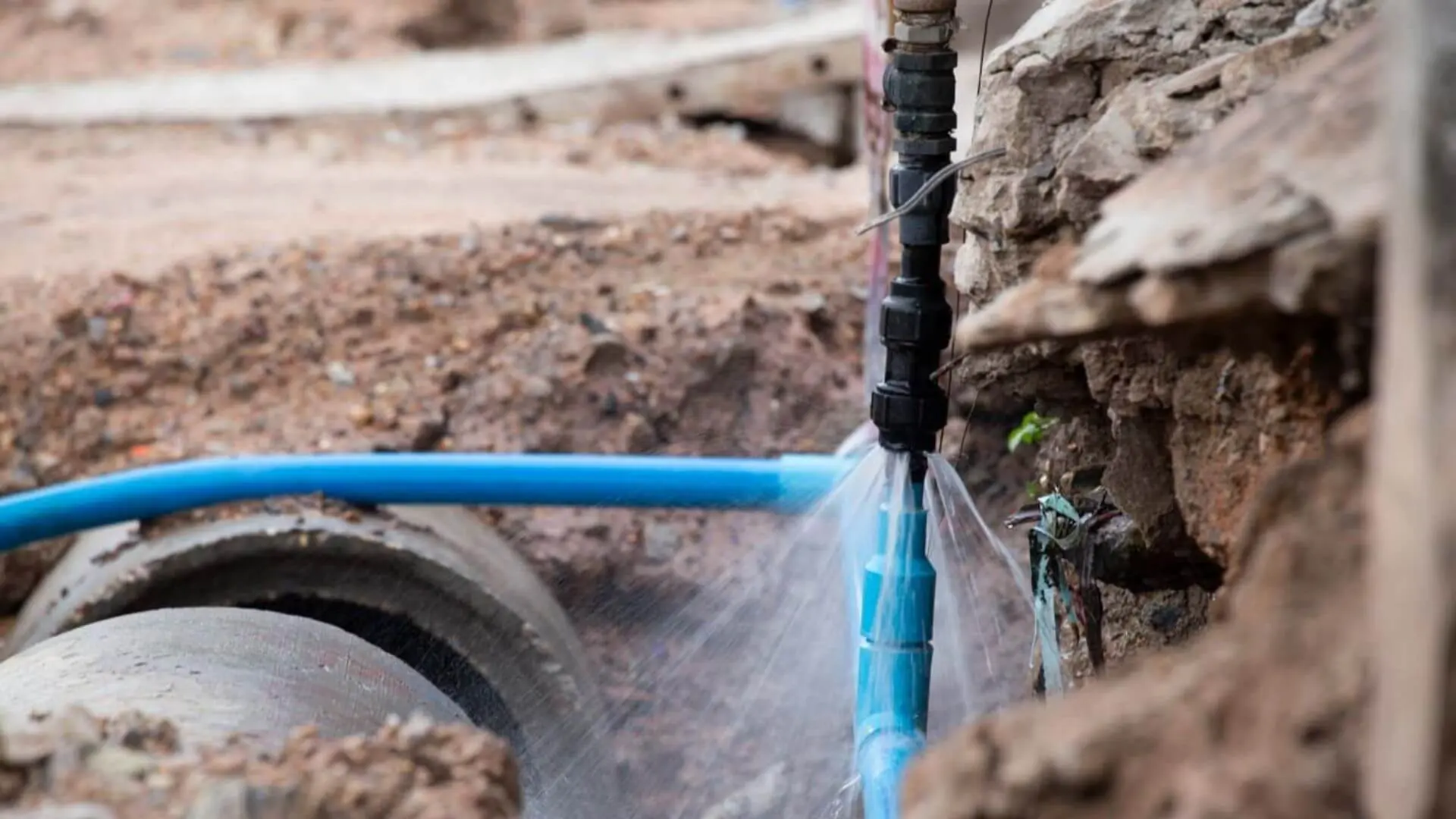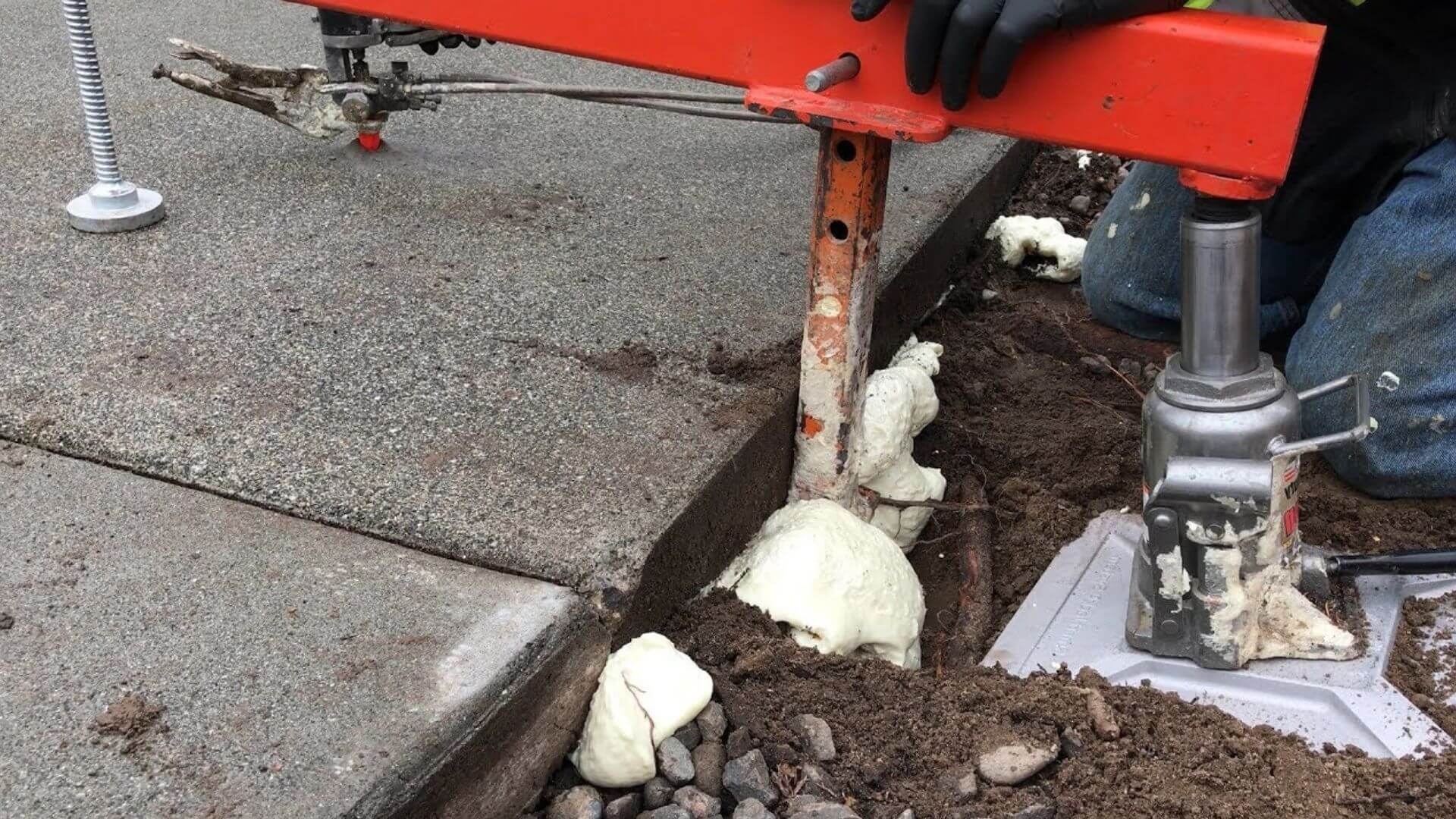Spotting a pool of water where it’s not expected can worry any homeowner. Whether it’s in the kitchen sink, backyard, or driveway, unexpected water can be a problem. While residual moisture after rain or garden watering isn’t unusual, water on your driveway on a sunny, dry day signals bigger issues that likely require significant plumbing attention.
Figuring out what’s happening under concrete pavers and buried water pipes can be tricky. It might be a ruptured water main or another issue. The key is getting the right help to repair any damaged underground pipes.
Water under pavers can stem from several issues. Often, a leak in the water main is to blame. Factors like poor installation, natural wear and tear, or environmental changes could contribute to the problem.
Hearing a hissing noise by the main entrance or experiencing low water pressure might indicate a leak. Check it out if you spot pavers shifting on your driveway surface. It might even hint at a burst pipe.
Is There A Burst Water Pipe Under My Driveway?
Finding water pooling or excess moisture on the surface of your driveway can be related to drainage complications—particularly a burst pipe. Alternatively, hearing a ticking noise at the location of the water meter area and a massive jump in your utility bill could indicate a leak under the ground.

How Do You Find A Leak Under A Driveway?
Some companies provide specialist leak detection services. Because a leaking pipe may be complex to locate due to its location, you need equipment to penetrate the driveway and get to the problematic line.
Leak-locating equipment uses sensors to detect abnormal water flow through the pipework. There are two main methods of leak detection they are Acoustic and Thermal. One uses sound waves, and the other uses thermal imaging via a camera.
Repairing A Leak Underground
Pipe repair is a job that can seem daunting to the average homeowner. The first step is to determine what section of the pipe has failed. Patio repairs are less complicated with a paver patio. Other areas, usually in a crawl space or basement, will be more problematic. The specialised leak locating equipment and a professional company will find the broken pipework.
The next step is creating a work plan to fix any necessary pipework. New technology is available these days where. You don’t need to remove or replace the entire pipeline. This is called pipe relining.
Pipe relining or no-dig pipe repair is a non-intrusive pipe reconstruction that doesn’t use extensive excavation to remove the entire pipeline. The defective pipe section is repaired from the inside and put back in place. Making the pipeline more durable.
The process is completed half the time than traditional repairs and is a fraction of the cost. There is no need for tens of thousands of dollars for landscaping and landscape contractors afterwards.
How Do You Fix Sunken Pavers?
Your pavers can shift and sink due to the ground moving and other natural elements. The method is simple if you have time and suitable materials and tools.

What Will You Need?
- Paver Sand
- Shovel
- Rubber mallet
- A straight 2x4
- Screwdriver, pry bar or putty knife
Steps
Assess the initial cause of the moving pavers. A licensed plumber can carry out the necessary inspection to determine if there is an existing pipe or underground water leak causing the issue.
Remove the pavers that collect water using hand tools such as level-headed screwdrivers. Put the pavers that you want to replace.
You need to clean and prepare the base area. Clean and dispose of weeds or other materials such as rocks and rubbish. Fill any visible holes with dirt.
The next step is to add the pavers and sand (masonry sand or polymeric sand) onto the base material. Make sure you use a shovel and compact the sand by using a paver and mallet to tap it down the sand. This will ensure it is level and has a smooth surface. For larger surface areas, use the 2x4 to spread the sand.
You can now start to replace the pavers. Use the mallet to secure the pavers in place.
You can adjust the level as you go and fill any area that is not straight. If there is a water leakage or just a trickle of water seeping under the driveway, you may need to address the issue using acoustic and thermal technology to detect the water leak.
If a water leak is found under the driveway, a licensed plumber can properly address the water seeping and underground water leak to prevent further damage to the pavers.
Driveway Water Leaks
With that, we come to the end of our guide. It is always important to find the source of the problem before replacing your driveway pavers.
If you see damp patches or pooling water on your driveway but can’t find the source, it’s smart to contact leak detection experts. They use advanced tools to check under the concrete slab and find any leaks underground. Ignoring it could mean the problem comes back as pipes get worse over time.
A sudden spike in your water bill could also indicate an unseen leak between your water meter and the inside plumbing system. Early leak detection and repair is always the best approach to avoid wasting water and money, as well as preventing worsening leaks from causing costly water damage to your property over time. Finding and fixing the root cause of leaks below your driveway is important to resolve the problem in the long term.
We hope you learned some valuable information and can fix your water lines and the leak under your driveway to keep your property in good condition. If the leak is severe, the best option is to call your trusted plumbing team for a licensed plumber to help solve all your plumbing problems. Or suffer a high water bill, waste water and damage your property. If you need a plumber in Maroota for leak detection, pipe relining or emergency repairs, please contact our team anytime!














